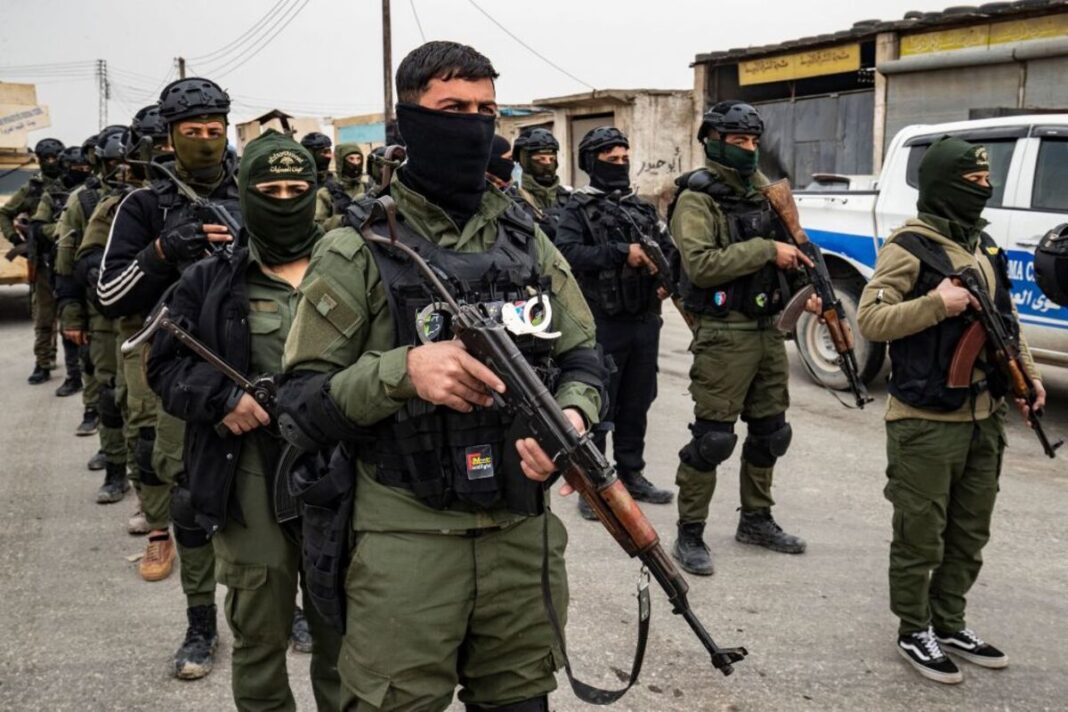Turkey has made it clear that it wants to dismantle the Kurdish military forces in northern Syria. These forces, especially the Syrian Democratic Forces (SDF), have been a major ally of the United States in the fight against Islamic State (IS). However, Turkey views these Kurdish groups, particularly the PKK (Kurdistan Workers’ Party) and YPG (People’s Defense Units), as a major security threat. Turkey, the US, and the European Union consider the PKK, a group that has fought against the Turkish government for decades, a terrorist organization.
Turkey’s Stand on Kurdish Militants in Syria
Recently, Turkey has engaged in discussions with Syria’s new rebel government, led by Hayat Tahrir Al-Sham (HTS), a group that controls parts of Syria. Turkey’s Defense Minister, Yasar Guler, stated that both Turkey and Syria’s new administration agree on the need to remove the Kurdish forces from the region. Turkey has repeatedly emphasized that the Kurdish presence near its border poses a significant security concern.
In response, Turkey has urged the US to stop supporting these Kurdish forces. The US has been providing military support to the SDF for several years, mainly to fight against IS. Turkey argues that the SDF is closely linked to the PKK and that their presence in Syria could destabilize the region. Turkish officials assert that the PKK/YPG terror organization should dissolve, and they have shared this view with the US. However, Turkey and the new Syrian rebel administration have not made a formal agreement as of now.
Turkey and Syria’s New Administration: A Common Goal?
While Turkey has been clear about its desire to dismantle Kurdish forces, it’s important to understand the political landscape in Syria. The new Syrian rebel administration, led by HTS, is a breakaway faction of al-Qaeda. The group has taken control of several regions in
However, the HTS has not explicitly commented on any discussions with Turkey regarding the Kurdish forces. There are no clear details on what the new Syrian government’s position is on this issue. But Turkey’s Defense Minister Guler has stated that both Turkey and Syria’s new administration agree on the need to eliminate the Kurdish militants. He mentioned that in the “new period” under HTS, the PKK/YPG would be dismantled, but no further details were provided.
The Kurdish forces in Syria are seen by many as a necessary partner in the fight against IS. The US has relied on the SDF to prevent the resurgence of the extremist group, particularly after the downfall of the Assad regime. Despite this, Turkey has repeatedly expressed its opposition to the Kurdish presence in Syria, citing security concerns. Turkey is focused not only on dismantling the Kurdish forces but also on removing foreign members within these groups and confiscating their heavy weapons.
US-Turkey Tensions Over Kurdish Militants
The issue of Kurdish militants has been a source of tension between Turkey and the US for several years. During a recent visit by US Secretary of State Antony Blinken to Ankara, the Kurdish issue was a key point of discussion. Turkish officials have continued to pressure the US to reconsider its support for the Kurdish groups in Syria. They have even proposed an alternative plan where Turkish forces would take responsibility for fighting IS and managing detainees in Syria. However, according to Turkey’s Defense Minister, Washington has not yet responded to this proposal.
One of the main points Turkey raised was the absence of significant IS activity in the region in recent years. Guler pointed out that there have been no reports of IS terrorists attacking in Syria for the last three years, downplaying the threat of the group. This is in contrast to the US’s position, which still sees IS as a major threat and relies on the Kurdish forces to combat any resurgence of the group.
US-Turkey Cooperation Amid Syrian Tensions
During the same visit, Blinken stated that US officials had been in contact with HTS and other groups regarding principles for Syria’s political transition. Turkey and the US have both called for an end to hostilities in Syria. This shows that, despite their differences over the Kurdish issue, both countries share a common goal of finding stability in Syria.
While the US has been cautious about engaging with HTS, it has recognized that the group now controls a significant portion of Syrian territory. Blinken emphasized the need to see what actions the new administration in Syria would take and give them a chance to prove their commitment to international standards, particularly regarding the use of chemical weapons.
In the face of these tensions, Turkey has expressed its willingness to support the new Syrian government if needed. Guler stated that Turkey is ready to provide necessary support for military training or cooperation, should the new Syrian administration request it. However, it remains unclear how these discussions will evolve, given the complex dynamics in the region.
Turkey’s primary goal is the eradication of Kurdish forces from Syria, and it will continue to pressure both the US and the new Syrian rebel administration to achieve this objective.

